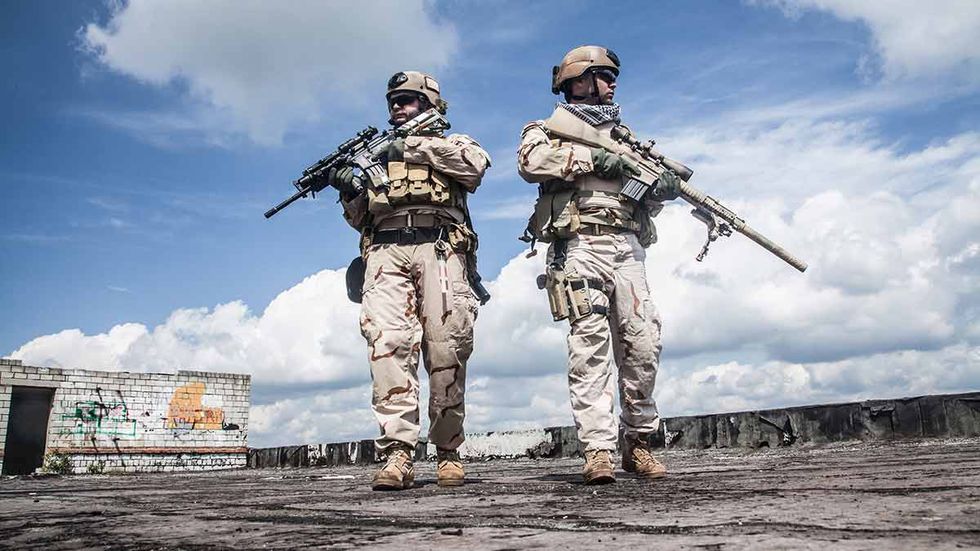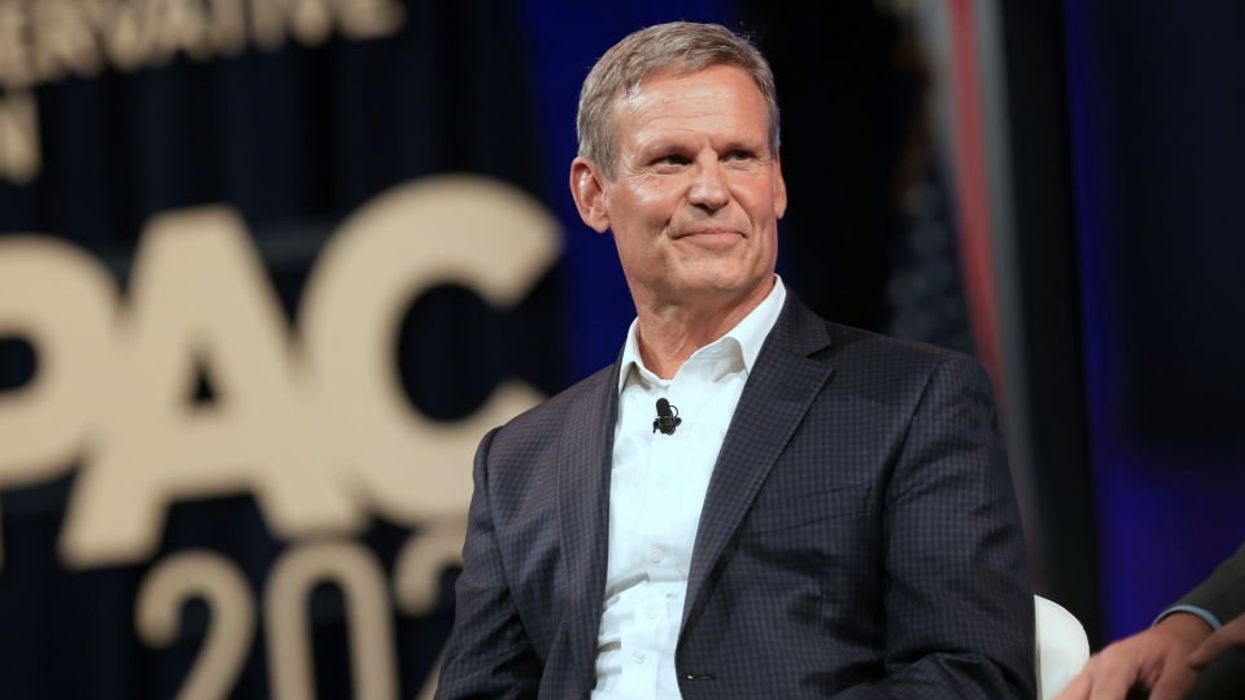
© 2024 Blaze Media LLC. All rights reserved.
Place our brave soldiers into an Islamic civil war first, ask questions about national security interests and strategy later. That has essentially been the modus operandi of our military adventures in the Middle East for this past generation.
In the waning months of the Obama presidency, few in the media have bothered to report that Obama is continuing to ratchet up the missions of our special operators, using them as his private mercenary force to save political face from quagmires in the Middle East until he leaves the White House and everything falls apart on the watch of the next president. As we observed in July, despite the much-vaunted debate over pulling out from Iraq and Afghanistan, Obama has actually increased troop levels in those regions in recent months. At the same time, he has placed draconian restrictions on their ability to fight the enemy and has failed to formulate any long-term strategic goals.
Meanwhile, the Taliban reportedly operate in more territory than they did before the 2001 U.S.-led invasion. The military just dispatched another 100 soldiers to Helmand province, which is overrun by the Taliban. Earlier today, at least one U.S. soldier was killed there in a roadside bombing and another one was seriously injured. What exactly are these 100 soldiers to do? How many more good men have to die for an aimless mission to prop up a Sharia government?
Obama wants to use our special ops as his private band aid as a panacea for the deep wounds he has sown throughout the region. Misusing special operators for impetuous crisis management with no broader strategy allows Obama to keep troop levels artificially low and avoid scrutiny from Congress or the media. Now he has added two more theaters to the war to nowhere: Libya and Syria.
Libya
Although the dubious mission behind Benghazi might seem like a thing of the past, our lack of strategy in the country has continued to fester since 2012. Obama has kept special operators on the ground for years, and now, according to the Washington Post, the Pentagon is finally admitting that they are involved in ground and air campaigns against the Islamic State in Sirte. While any war against the Islamic State sounds worthy, Obama is getting us sucked into the same Middle East sink hole that has plagued us for over a decade. Who exactly are we fighting for? Who will hold this ground?
While our troops on the ground are busy fighting an aimless war, the elected government in Tobruk just voted against joining the US-backed (and UN) Government of National Accord (GNA) in Tripoli. Obama is trying to successfully block reformers from fighting the Muslim Brotherhood, much like he tried to do in Egypt against the government of el-Sisi.
In 2014, the only democratically held elections resulted in the creation of a government in Tobruk (northeastern Libya) committed to rooting out the radical Islamists. The duly-elected Libyan House of Representatives appointed Khalifa Haftar commander of the Libyan army. Haftar successfully took back much of eastern Libya from the radical Islamists and fought the various terrorist factions, including those associated with the Muslim Brotherhood. Haftar was so feared by the Islamists that Ansar al Sharia, the group behind the Benghazi attack, accused Haftar of launching “a war against the religion and Islam backed by the West and their Arab allies.” Naturally, Obama and the international community didn’t appreciate the war on their Muslim Brotherhood friends so they installed a government in Tripoli, which includes a number of Islamist factions and is not very popular. Now, the Tobruk government has rejected the U.S. backed government – all the while our troops are on the ground fighting for …?
Syria
It’s not just the Islamic State that is in Syria. A multitude of Islamic factions, along with the Assad Administration, are fighting each other. Yet, our special operators are on the ground there to help “the rebels.” Not only is it unclear what ground they are holding and for whom, our soldiers are not even allowed to engage in combat while being placed in combat. As Eli Lake reported last week, their job is to not get shot at! This is similar to the dynamic in Afghanistan where special operators are being tasked with keeping the entire country together with a small force but they must call a lawyer before even calling in close air support. What happens when our soldiers are placed in an untenable situation? Last week, they were almost bombed by Syrian aircraft because nobody is coordinating a broader mission there that serves our strategic interests.
Syria is full of multiple enemy factions. Al Nusra recently decided to get in on the “Syrian rebel” racket that western countries have been offering. They decided to cut ties with Al Qaeda and rename themselves Jabhat Fath al-Sham (JFS), seizing the opportunity to unite the rebel factions. They now have an English-speaking Aussie spokesman with a Twitter account to boot. So will Obama’s myopic focus in Syria now lead him to back these Islamists as well simply because they are rebels? It’s no coincidence that Obama’s UN envoy vetoed an effort to designate Ahar-al-Sham, a close ally of Nusra, as a terror group. After all, these Islamist rebels have been more “effective” against the Islamic State than the Pentagon-backed rebels, who themselves have been pitted against CIA-backed rebels.
As Andy McCarthy puts it, by doubling down on the Syrian engagement “we’d simply be empowering one set of anti-American Islamists against another.” The entire effort against Assad and the Islamic State is dominated by groups with ties to Al Qaeda and the Taliban, as Thomas Joscelyn chronicles so clearly at The Long War Journal. What do we stand to benefit from getting involved in a viper pit full of enemy factions?
Why are we placing our troops into this untenable circus without first formulating a long-term plan? When there is no big picture of what we are fighting for, or worse, if we are downright fighting for the Muslim Brotherhood, the last thing we should be doing is placing our troops on the battlefield.
When Congress returns from summer recess, they have the opportunity to address Obama’s backwards strategy in the Middle East in both the defense authorization bill and the continuing resolution funding bill for fiscal year 2017. They can easily bar any funding, training, and equipping of rebel groups in Syria and deny any logistical support for the inept GNA in Libya. Given the track record of this Republican Congress, it’s unlikely they will even raise any concerns over Obama’s “strategy,” much less take any action.
Want to keep up with what's going on in Washington without the liberal media slant, establishment spin, and politician-ese?
Sign up to get CRTV’s Capitol Hill Brief in your inbox every evening! It’s free!
Want to leave a tip?
We answer to you. Help keep our content free of advertisers and big tech censorship by leaving a tip today.
Want to join the conversation?
Already a subscriber?
Blaze Podcast Host
Daniel Horowitz is the host of “Conservative Review with Daniel Horowitz” and a senior editor for Blaze News.
RMConservative
more stories
Sign up for the Blaze newsletter
By signing up, you agree to our Privacy Policy and Terms of Use, and agree to receive content that may sometimes include advertisements. You may opt out at any time.
© 2024 Blaze Media LLC. All rights reserved.
Get the stories that matter most delivered directly to your inbox.
By signing up, you agree to our Privacy Policy and Terms of Use, and agree to receive content that may sometimes include advertisements. You may opt out at any time.



